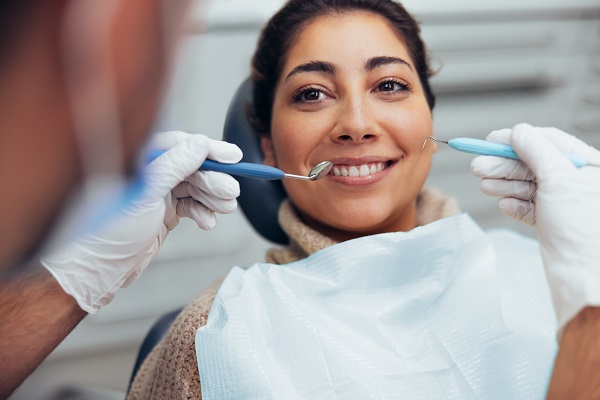Four Tips for Dental Cleaning Aftercare

Dental cleaning may be non-invasive, but it is still a dental procedure. It is important to know what to expect from professional teeth cleaning. It is equally important to know how to care for your mouth after the procedure.
The importance of dental cleaning
Good oral habits prevent the development of all kinds of oral health issues. For starters, regular teeth cleanings allow dentists to reach spots that their patients may miss. Routine dental visits also allow the dentist to monitor the health of every part of their patient’s mouth. These visits are also an opportunity for the dentist to reinforce good oral habits and discourage bad ones.
The procedure is fairly straightforward:
- First, the dentist will examine the teeth, gums, and oral cavity for oral health issues
- They will fix small dental problems on the spot
- If the patient is fit to undergo teeth cleaning, the dental hygienist will start.
- They will rinse the mouth and proceed to remove plaque and tartar
- Next, the dental hygienist will polish the teeth with polishing paste and an electric handpiece
- They will proceed to floss the teeth to remove any plaque hiding between the teeth
- The dental hygienist will then apply a fluoride treatment to the teeth. Fluoride reinforces and strengthens the enamel, which goes a long way to prevent cavities
- Lastly, the dental hygienist may apply a sealant onto the surfaces of the molars. Sealants create a physical barrier that prevents harmful bacteria and other substances from breaching the enamel
Dentists also use routine checkups to advise their patients on good oral habits. They answer their patients’ questions and where necessary, craft treatment plans for existing dental problems. Here is how to take care of the mouth after a dental cleaning.
Aftercare tips after a routine dental visit
It bears repeating that dental cleaning does not happen with topical anesthesia. This fact points to the possibility of slight discomfort during the procedure. How about after the teeth cleaning? The following section describes what to expect and what to do after dental cleaning:
1. Wait 30 minutes before eating or drinking
This wait time gives the topical fluoride treatment a chance to bond with the tooth enamel. Drinking acidic or fizzy drinks will wash away the fluoride before it fuses with the minerals that form the surface of the teeth. If the patient is thirsty, they should only sip water.
2. Avoid hot foods and drinks for 4 hours after teeth cleaning
Hot food and drink can dissolve the fluoride before it has a chance to set permanently. The heat can also be uncomfortable for the patient experiencing tender gums and sensitive teeth after the cleaning.
3. Brush gently before bed
Use a toothbrush with soft bristles to clean the teeth, making sure to be gentle with the teeth and gums. The temptation to skip the nightly brush may be a thing that happens, but power through and brush your teeth unless the dentist tells you differently.
4. Be on the lookout for warning signs
Tooth sensitivity and tender gums are normal after teeth cleaning. People who go for long periods without flossing may also experience a little bleeding.
However, all these inconveniences should clear up in a day or two. Any longer and the patient should visit their dentist to find out if there is a complication that needs treatment.
Get a second set of eyes on your teeth
Sometimes you miss a spot when you brush your teeth, and it takes a keen pair of eyes to notice. Our dentist offers you their expertise, which can go a long way to ensure your long-term oral health. Get in touch with our office to take charge of your oral health.
Request an appointment here: https://artisandentalbellevue.com or call Artisan Dental at (425) 454-2005 for an appointment in our Bellevue office.
Check out what others are saying about our dental services on Google: Dental Cleaning in Bellevue, WA.
Related Posts
Dental hygiene and fresh breath go hand in hand, and for many patients, a regular dental cleaning is a crucial part of their oral care routine to have healthy teeth and gums and avoid bad breath, or halitosis.In this article, we delve into dental cleaning and its relationship with bad breath. We explore how routine…
Dentists perform dental cleaning to prevent problems like tooth decay and gum disease. A dental cleaning procedure is more intensive than your daily oral hygiene routine.Read on to find out why aftercare is necessary after a dental cleaning. The following also explains how to care for your teeth after professional teeth cleaning.Dentists advise their patients…
A dental cleaning is performed to remove plaque and tartar that can naturally build up on teeth and along the gum line. The process is non-invasive and takes less than an hour to complete. It is helpful to understand the steps involved with the dental cleaning process before the day of the appointment.While every experience…
Bad breath is a far more common issue than many people realize. Simply because someone does not notice their own bad breath does not mean it is not an issue. The good news is that bad breath is relatively easy to treat and prevent long-term in many cases. One of the best ways to treat…









